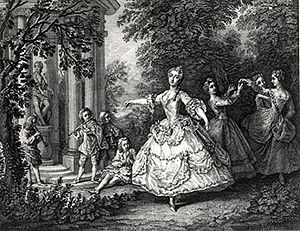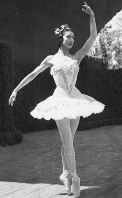for all your ballet needs
Ballet History Past and Present
(1707–56). French dancer and choreographer Marie Sallé Dance as an art has been around since prehistoric times; however ballet is a modern art. You can look at the history of ballet as a part of the history of dancing. The art of ballet can be described as a theatrical performance of solo or group dancing, which is generally a musical, and accompanied with vocals and unique costumes, exciting scenery, and appropriate lighting in sync with the performance. Based on the traditional techniques of the 17th & 18th centuries, French ballet, along with the Italian school of the 19th century, arose what we known as Classical Ballet movement. Due to the expertise of talented teachers such as Legat, Carlo Blasis, Cecchetti and C.P.Johnson, classical ballet reached its ultimate perfection. The foundation of classical style of ballet rests on the five positions of the feet, pointe, turns, extension, elevation and the work and technique of beats. The rigidity of classical ballet led to the birth of modern dance. Ballet history dates all the way back to the Renaissance period of history where ballet performances were done at courts in big banquet halls as people were eating lavish dinners. These lavish performances often brought together dance, painting, poetry and music. To perform at the courts was a spectacular accomplishment for the performers. As time progressed, ballet was also in the Italian courts, and they were a bit different than those that had previously been in France. One of the only ballets that are left from that time period that has a complete score to this day was Le Ballet Comique de la Reine (The Queen's Ballet Comedy); this was performed in 1581 in the city of Paris, France. From the Italian courts, ballet expanded in France and Russia, in the form of a concert dance. The Ballet of Sergei Diaghilev is particularly significantly. Only until recently did it become popular in the United States. Ballet also flourished in Denmark, with the Royal Danish Ballet playing a dominant role in the history of ballet. During the 20th century, balled flourished and had a powerful influence on broader concert dance. Famous American choreographer, George Balanchine, was instrumental in developing what is now popularly known as neoclassical ballet. Germany’s William Forsythe, development in ballet, included post-structural and contemporary ballet. While ballet is best known in its classical form, it further became popular in contemporary and neoclassical ballet, as mentioned above.
Professional Ballet In The Early Years Looking at the ballet history, you’ll learn that Louis XIV was the first person to bring ballet into a professional status. He started the Academie Royal de Danse (The Royal Academy of Dance) that was designed for the masters of dance. This was the time when only men were allowed to dance ballet which meant that they also had to dance the female parts; these they danced in masks. Women did not dance in professional ballet until 1681. The first ballet that allowed women was called, Le Triomphe de l'Amour (The Triumph of Love). As ballet evolved the opera ballet was formed that brought together singing and dancing in the ballet story. One of the most famous opera ballets was called, Les Indes Galantes (The Gallant Indies), and it was performed under the direction of Jean Phillippe Rameau, the composer. The opera was about the people in exotic lands and was written in 1735.
Famous Ballerina There have been several famous ballerinas throughout the ages. Anna Pavlovna Pavlova (1881-1931), a Russian ballerina, was one of the most famous ballerina of the 19th and 20th Centuries. She was the Principal artist of the Ballets Russes and the Imperial Russian Ballet. She is most noted for her role in The Dying Swan and she was the first ballerina to have her own company and tour around the world.
Dame Margot Fonteyn de Arias (1919-1991), was considered to be one of the most famous ballerinas of the 20th Century and she was also known as one of the greatest English dancer. She came from the United Kingdom. She danced with many famous men like Rudolf Nureyev and she joined the Royal Ballet when she was still in her teen years.
|
|



